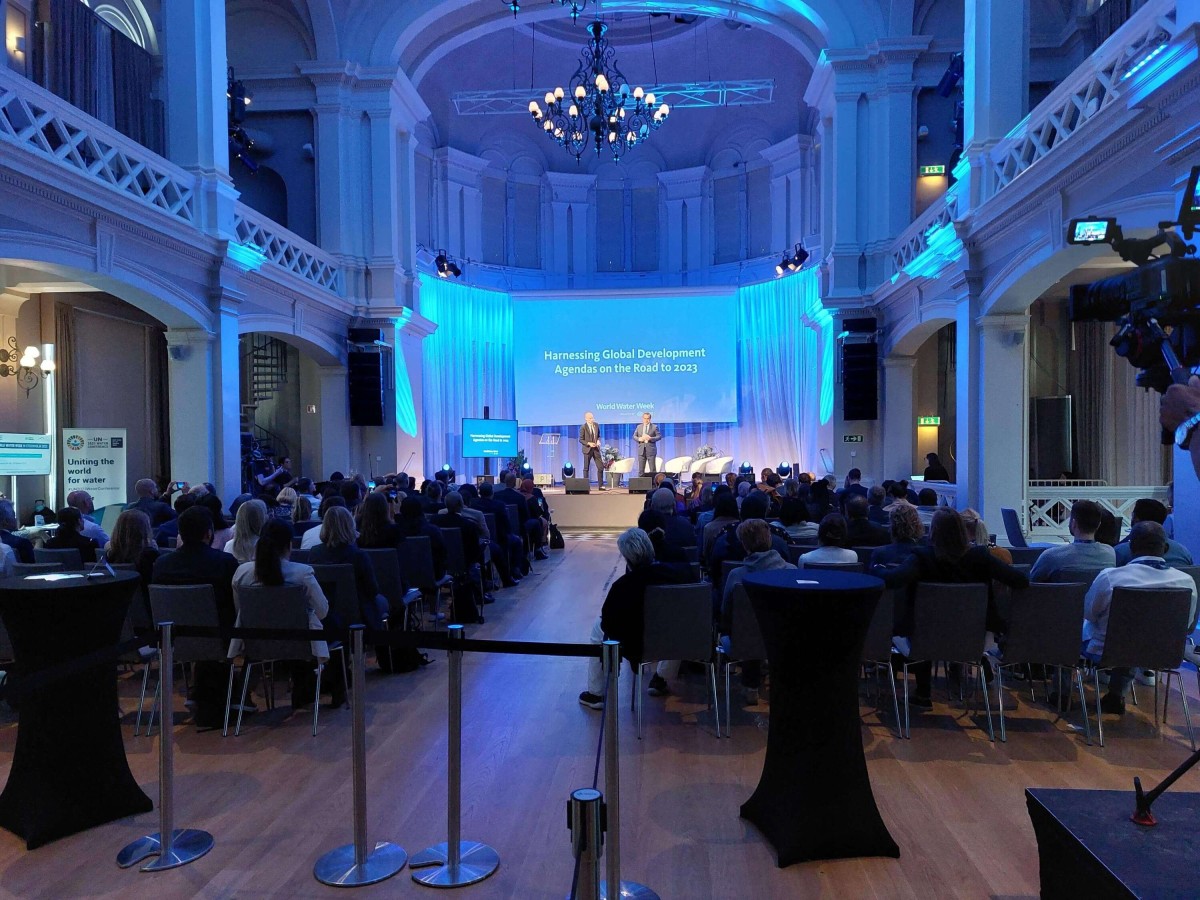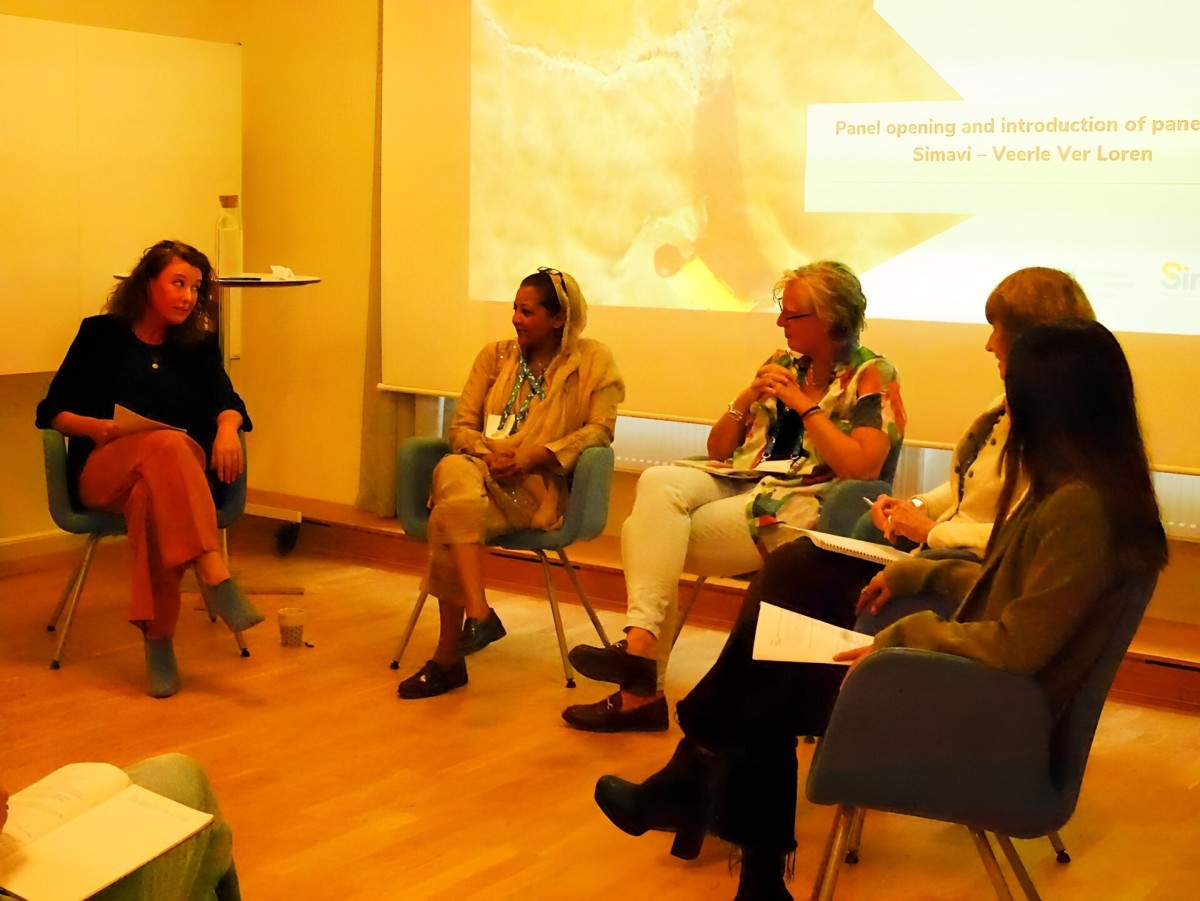Looking back on World Water Week 2022: Local communities in the driving seat?
The annual World Water Week in Stockholm (Sweden) provides a great platform for collaboration, shared learning and joint action to address one of the world’s greatest challenges: the availability of clean and safe water. This is more relevant than ever, as climate change and resulting extreme weather events threaten water security and disproportionally affect the poorest, especially women and girls.
At Simavi, we believe that putting those who are at the forefront of the water crisis in the driver's seat is essential for decision-making. Not only because it’s the right thing to do (as they are hit the hardest but did not cause the climate crisis in the first place), but also because their voices and expertise are crucial for change in water and climate adaptation policy. While for countries like the Netherlands and Sweden climate-induced droughts might still feel like a novelty, this is nothing new to the countries and communities Simavi is partnering with. In fact, many of the women and girls Simavi works with have been adapting to climate change for years. Their solutions ‘just’ don’t reach important joint action and decision-making moments, such as World Water Week or the UN Water Conference in March 2023.

Panel discussion on locally-led adaptation
In practice, this means it’s time to make space for the stories and experiences of those living with the realities of water shortages, floods, and other climate change events. However, what is the best way to do so? This is exactly what we discussed during World Water Week at the event “Climate Crisis = Water Crisis. Local Communities in the Driving Seat”, organised by Simavi and the Stockholm Environment Institute (SEI). Four panellists, Sareen Malik (ANEW), Karin Roelofs (Dutch Ministry of Foreign Affairs), Nhilce Esquivel (SEI) and Dieneke van der Wijk (Simavi), discussed how community-driven solutions in the water and climate sector can actually work. They gave their insights on what is needed and explored the current bottlenecks for successful locally-led climate adaptation. In other words, how can we work with – and for – the communities who are disproportionally affected by climate change?
One of the most important needs discussed during the panel is recognising and giving ownership to local knowledge. Malik illustrated the complexity of this: “The most useful information won’t come from the women who will come to your meetings. Those are just the gatekeepers. You have to find the women too busy to meet with you, those who are standing in line at the water source at 5 in the morning. That’s where the real information is”. This starts with knowing the context, power dynamics and relevant stakeholders involved. However, Esquivel pointed out how current research into these issues is not representative. In a powerful plea for decolonising research, she explained how the different stages of research are still dominated by external actors. The lived realities necessary to fully grasp the specific contexts are often excluded from the development of research topics, questions and proposal requirements, causing significant gaps and under researched areas. Therefore, both the needs and solutions of local communities, specifically those of women and youth, are left out of climate adaptation policy and practice.

Resources for locally-led solutions
Secondly, civil society organisations (CSOs) working on locally-led adaptation need more resources. As emphasised by Van der Wijk, for international organisations like Simavi, this is not just a matter of providing them with financial or capacity support. She underlined the importance of collaborating in partnerships instead of in classic donor-recipient relations: “As Simavi we are a convenor, a broker with accountability to our partners, rather than demanding upward accountability from them”. For this, van der Wijk explained, a feminist leadership approach is crucial, as this expects everyone to address power dynamics and demonstrate the willingness to adapt and change. In turn, Roelofs explained the barriers to providing resources to local CSOs from a government point of view. She described how current administrative procedures constrain the direct investments in local organisations working on climate change adaptation. However, the willingness to realise locally-led solutions is there and Roelofs highlighted the Dutch Ministry of Foreign Affairs is working on this financing issue.
Above all, the panellists recognised the need to give local communities a voice in climate change adaptation. In the words of Malik, “you can support us to arrange for us to take the floor, to support us with voice”. As she explained, a good start was to bring her to Stockholm. But that is not enough. All panellists recognised the lack of local communities being in the driving seat during World Water Week 2022. This is not only due to the high costs of the conference and travel, but there are also significant barriers related to accreditation and visa application. The panel were not the only ones recognising the absence of the people driving locally-led adaptation. It’s also an increasing priority of the World Water Week’s organisation, as addressed in World Water Week’s Director Gabriela Suhoschi’s concluding remarks.
Conclusion
The extent to which local communities are included is a valid concern regarding another important meeting on the international calendar, the UN Water Conference in March 2023. As the Netherlands is co-hosting this conference, we closed the discussion by asking Karin Roelofs how the Dutch government drives inclusivity at this conference, specifically regarding climate adaptation. Her answer is a call to action for all of us, demonstrating that the Dutch government also needs its partners such as international NGOs to advise them on how to realise local communities’ participation. A request we at Simavi won’t take lightly!

